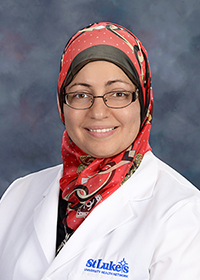For the majority of new moms, the maternal instinct hits hard and strong. The minute that beautiful baby is born, a protective, nurturing feeling overpowers and overshadows any self-serving feeling you’ve ever had. BUT, that need to nurture and protect can also lead you to act in a way that is detrimental to your own health and well-being, especially in the early stages of mommyhood. It’s important to know that taking care of yourself IS taking care of your baby.

Taking care of yourself post baby starts well before the baby comes. Even before you conceive, you can make sure you’re in tip top mommy form. “Your health, even before pregnancy, affects of lot of things during pregnancy, delivery and even post delivery,” says Dr. Basha. In addition to an overall healthy diet and regular exercise, Dr. Basha recommends women include folic acid and prenatal vitamins months before getting pregnant. “By the time mom comes in for her first visit, the baby’s spin is already formed, so it’s important to start with the best nutrition as early as possible,” Dr. Basha explains.
Getting your body prepped for mommyhood is vital, but getting your head in the proverbial game is also important. And part of that means getting organized. “Pregnancy is nine months for many reasons but one of them is to give you time to get prepared,” says Dr. Basha. “Be practical - make things organized and efficient now, during pregnancy, so you’ll have an easier time after the baby arrives. Anything you can plan, organize, prepare - from washing baby clothes to taking prenatal classes and arranging visits for helpful out-of-town family members - all of that prep work can ease the stress of new motherhood.”
Taking care of yourself after you’ve had a baby is certainly no easy task - it takes a village! And you need to use those villagers (husband, partner, friends, parents, family) to get you through those postpartum weeks. Dr. Basha warns, “post baby time is NOT the time to play hostess. Visitors will want to see you and the baby, but put them to work - have them do something for you before they leave, call it the “price” to see baby.” She also stresses keeping the visits to 20 – 30 minutes max. And new moms have heard it dozens of times, but it’s worth repeating - when the baby sleeps, mom should sleep (or at least rest.)
If there’s a more serious problem, if help and support (and a nap) isn’t quite making you feel up to the task of taking care of your baby, there could be something more serious at work. Postpartum depression is very real and something your doctor will be asking you about during your follow up visits. Dr. Basha always asks her patients about how mom is handling things at home. In fact, she has personal experience with feeling overwhelmed after the birth of a baby, so much so that her body responded with a nasty case of shingles. “After my third child was born, I was so stressed that my immune system was shot,” she recalls. “I was trying to manage the older kids, the house, feeding the baby; I juggled so much, I made myself sick.” Dr. Basha tells her patients and their partners that cautionary tale before they even leave the hospital to stress the importance of self-care and maintaining a strong immune system with a healthy diet, exercise and rest. She especially stresses to dads that moms need nighttime relief, help with household duties - she even likes to see dads at doctor appointments both before and after baby comes. “They’re going through a huge transition too and we need to check in with them to make sure they are offering moms the support they need,” says Dr. Basha.
During mom’s six week check up, Dr. Basha looks for “buzz words” from patients like “difficulty sleeping,” “irritable,” “short tempered,” “breastfeeding frustration” - these terms give her clues that there could be a more serious problem with how mom is adapting to motherhood. But Dr. Basha stresses that if patients are feeling any overwhelming stress, resentment towards the baby or feeling like they can’t take care of the baby, to not wait until their six-week check up to call them - it’s important to get help right away.
Dr. Basha always prescribes a 30 minute daily walk for her patients after delivery. “Getting outside and light exercise lowers stress levels and does wonders for your head as well as your body. Plus, babies love being pushed in a stroller - win win!”

When asked about how they stress the importance of self-care to postpartum patients, Dr. Basha has this to say…
“It’s about the whole spectrum - making the right choices, the healthy choices before, during and after pregnancy. Those choices will help you do the right thing for yourself and also for your baby.” - Dr. Basha
Those first few weeks and months after your baby is born are very magical and new, but they’re also quite challenging. But don’t forget to use your oxygen mask first! You’ll be a better mom for it!
Media Contact
Samuel Kennedy, Corporate Communications and Media Relations Director, Marketing & Public Relations, 484-526-4134, Samuel.Kennedy@sluhn.org
About St. Luke’s
Founded in 1872, St. Luke’s University Health Network (SLUHN) is a non-profit, regional, fully integrated and nationally recognized network providing services at seven hospitals and more than 270 outpatient sites. The network’s service area includes Lehigh, Northampton, Carbon, Schuylkill, Bucks, Montgomery, Berks and Monroe counties in Pennsylvania and in Warren County in New Jersey. Dedicated to advancing health education, St. Luke’s operates the nation’s oldest School of Nursing and 22 graduate medical educational programs and is considered a major teaching hospital, the only one in the region. In partnership with Temple University, St. Luke’s created the region’s first Medical School. Repeatedly, including 2017, St. Luke’s has earned Truven’s 100 Top Major Teaching Hospital designation as well as 50 Top Cardiovascular program in addition to other honors for clinical excellence. St. Luke’s is a multi-year recipient of the Most Wired award recognizing the breadth of St. Luke’s information technology applications such as electronic medical records, telehealth, online scheduling and pricing information. St. Luke’s is also recognized as one of the state’s lowest cost providers in comparison to major teaching hospitals and other health systems.




